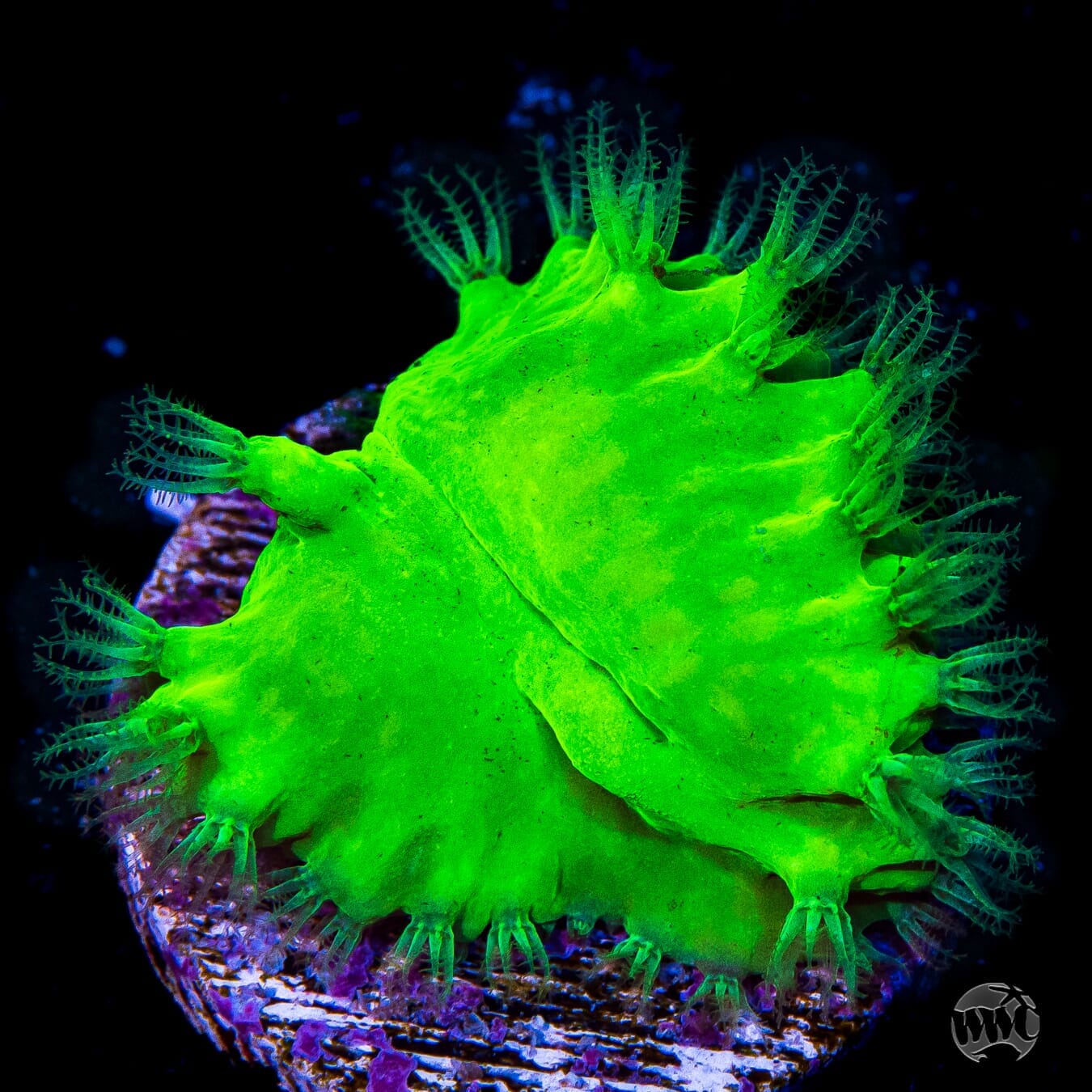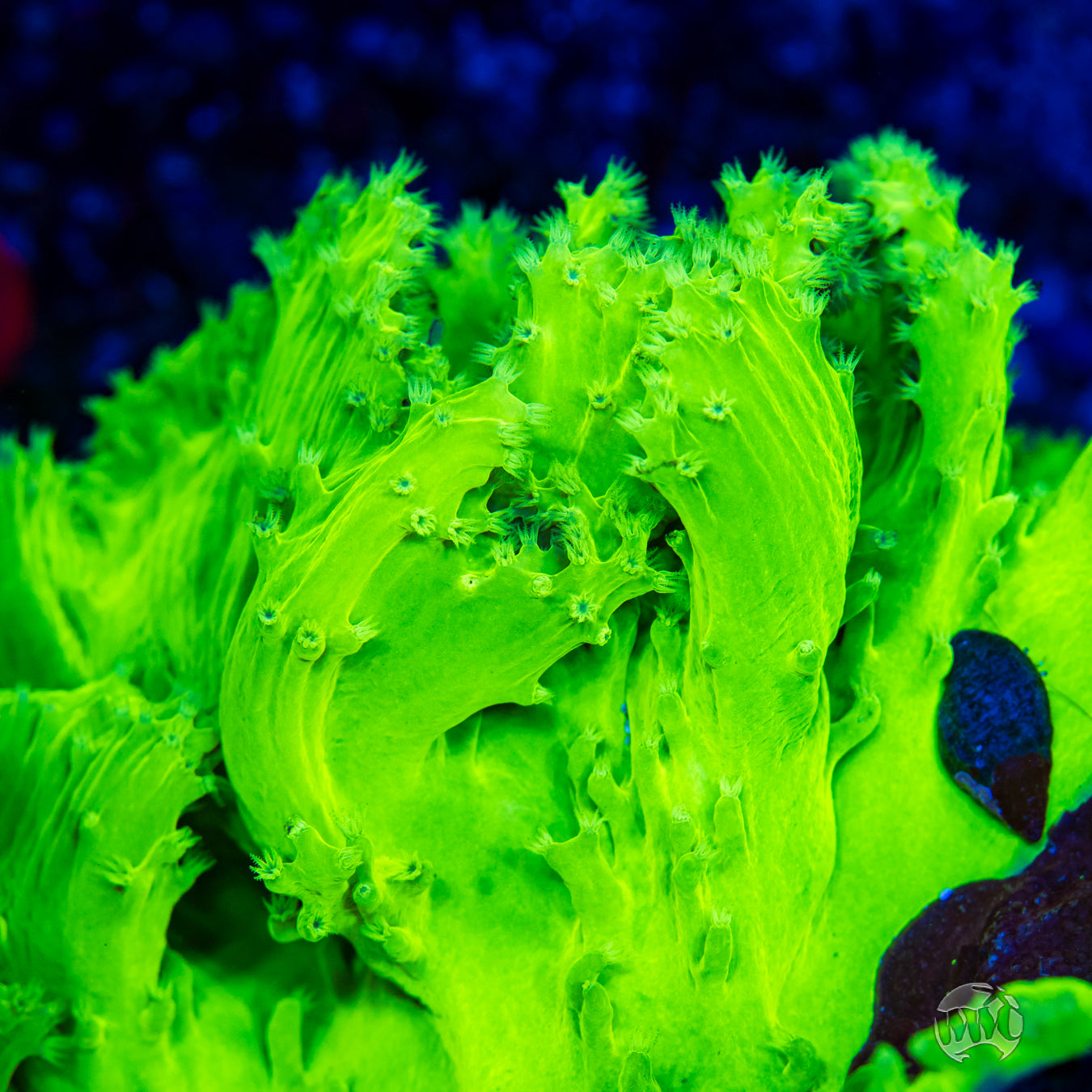Description
Sinularia dura
Frag is between 3/4" and 1 1/4" in size.
Photo is a representation of the shape, size, and color of the coral you will receive.
Cabbage Leathers are a perfect soft coral to start your saltwater aquarium or add to your existing one. Soft corals, also called Alcyonacea, are a favorite among beginners and new hobbyists due to their ease of care and spectacular, colorful structures. However, unlike their stony coral relatives, soft corals do not build an internal skeleton that alters the structure of the reef. These flexible corals bend with the flow of water to give them the appearance of waving blissfully in your tank. Soft coral aquariums generally need low to moderate light and are much more resilient to changes in chemistry within the tank.




